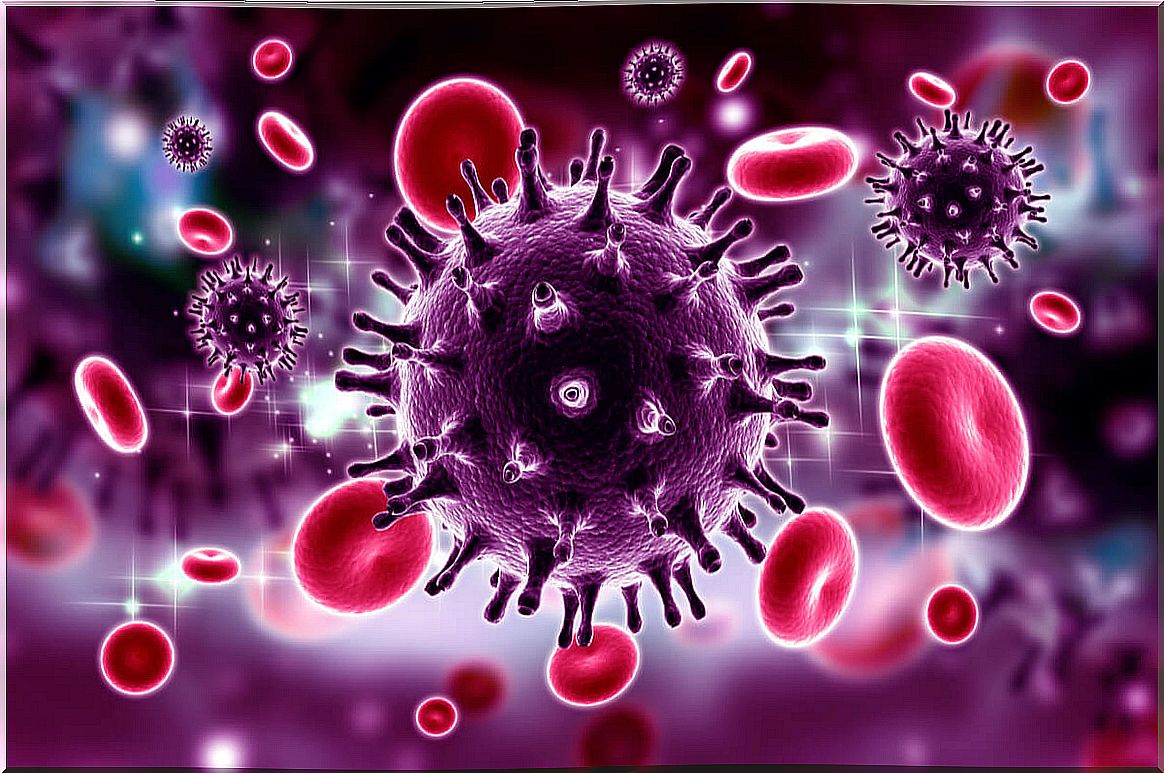5 Incurable Diseases Of The 21st Century
Despite the advances that have been made in the research of many diseases, some are still incurable today. Today we will see the most relevant.

In the 21st century we can be proud to have discovered the cure for malaria, Ebola, polio and to be able to prevent some types of cancer, as well as eradicate them completely if they are discovered in time. However, despite this, we continue to be surrounded by various incurable diseases.
Many of these incurable diseases will be familiar to us. Contracting them is something quite frequent, to the point that we have come to normalize them. However, with some of them, ignoring the symptoms and not treating them can lead to death.
1. Common cold

All of us have had one or more colds throughout the year. This disease is very contagious. If we are around someone who has a cold, blows their nose and sneezes, it is very likely that we have already been infected.
The cold, although it has normalized, is one of the main incurable diseases of the 21st century that still has no cure. In addition, it is one of the main causes why adults miss work and children miss school. Therefore, it can limit normal life to a great extent.
Nowadays, there is a phrase that we always hear: “the cold has to be passed” because although we can treat the symptoms and reduce them a little to be able to continue attending to our responsibilities, this disease is incurable.
Discover: What do you know about the cough associated with the cold?
2. Asthma
Asthma is an incurable chronic disorder that inflames the airways causing coughing, wheezing, chest tightness, or dyspnea. This disease usually appears before the age of 10 and is present throughout the life of the individual who suffers it.
For asthma, there is no medicine or pill that will completely eradicate it. Although over the years, some people notice how it decreases and is not as strong as when they were children.
The way to control asthma, which in some cases can be life-threatening, is to try to avoid what causes it. However, using inhalers will help keep your symptoms at bay.
3. Incurable diseases: HIV infection

HIV – also known as the human immunodeficiency virus – still has no cure in the 21st century. However, not all people with HIV have the disease AIDS. Some are only asymptomatic carriers. Let’s see what the difference is:
- Seropositive carrier : the result indicates that the individual has HIV antibodies and is not sick. It is just a carrier. You can transmit the disease, but it does not affect you.
- Seropositive patient : the result shows evidence that the individual has AIDS and the disease is active, not latent.
Currently, although HIV is one of the incurable diseases, there are treatments that improve and increase the quality of life of those diagnosed. Antiretroviral therapy, for example, has very good results.
4. Diabetes
Diabetes is another of the incurable diseases of the 21st century. This condition causes people to always be aware of their blood glucose levels. There are two types of diabetes, type 1 diabetes and type 2 diabetes. Type 2 is the most commonly diagnosed. Let’s see what peculiarities each one has:
- Type 1 diabetes : the body does not produce insulin, so the patient needs to inject it.
- Type 2 diabetes : the body cannot use insulin in the proper way, because there is resistance to it at the tissue level.
Although diabetes is very present in society, this disease can cause very serious complications. Therefore, it is necessary to control it and learn to live with it in the best possible way.
5. Schizophrenia, one of the incurable diseases still in the 21st century

Schizophrenia is a serious mental illness. According to Dr. Carol Tamminga, “the average age of its onset is in the early or mid-thirties in women and a little earlier in men.”
Just as a cure for this disease is unknown, its causes are also not defined. It is believed that genetic factors, problems in brain chemistry or unfavorable circumstances that trigger it.
Today, many of the symptoms of schizophrenia can be treated and controlled. For example, hallucinations or delusions. However, there is no cure for it.
The answer is in the future
There are other types of incurable diseases, in addition to the ones we have mentioned, so we still have a long way to go. However, that does not mean that steps towards a solution are not being taken.
It is important to bear in mind that thanks to the various research that continues to be carried out and advances in medicine, it has been possible to learn more about diseases, how to improve their treatments and, of course, closely follow the path to a cure.









